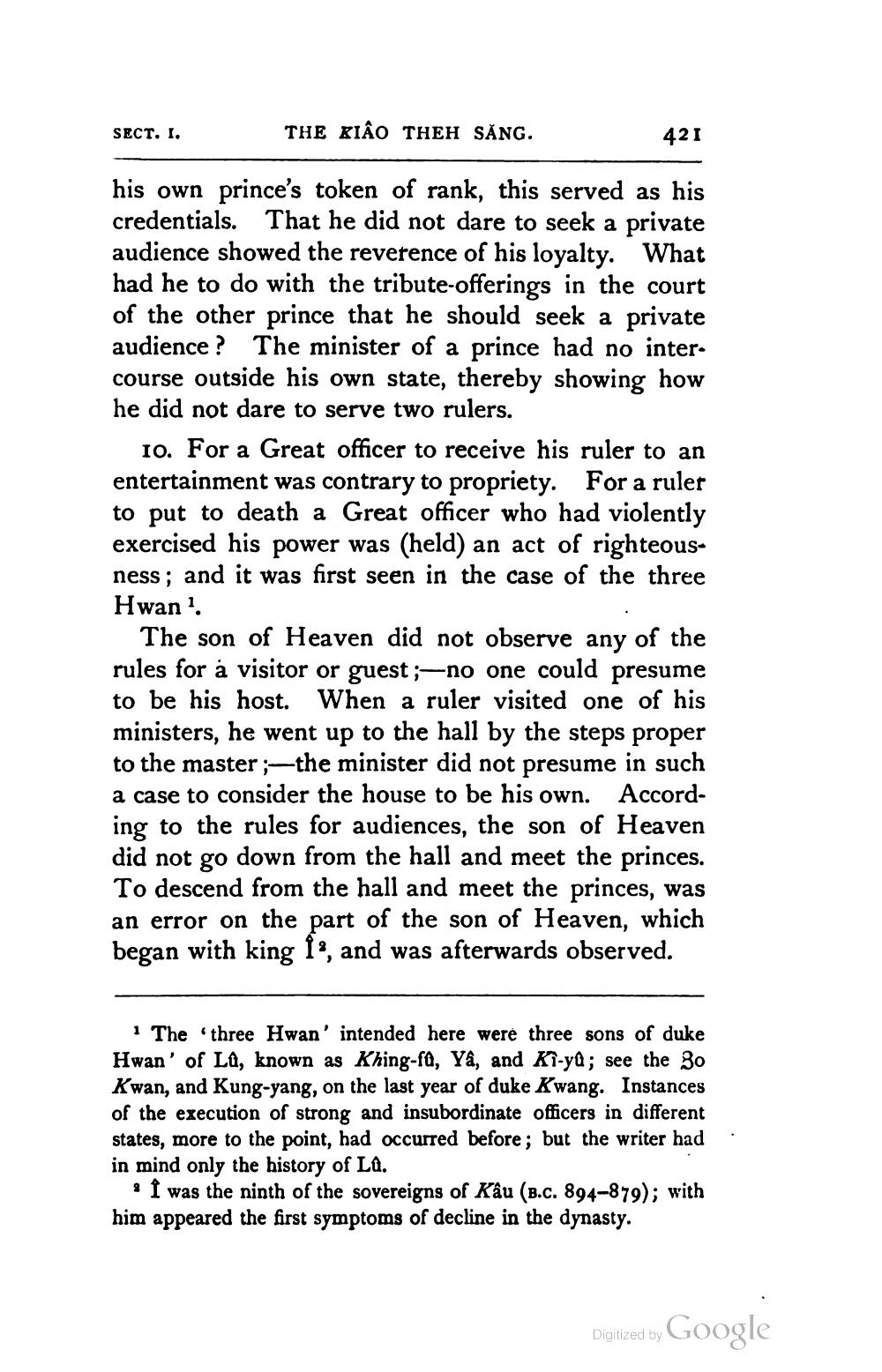________________
SECT. I.
THE KIÂO THEH SÅNG.
421
his own prince's token of rank, this served as his credentials. That he did not dare to seek a private audience showed the reverence of his loyalty. What had he to do with the tribute-offerings in the court of the other prince that he should seek a private audience? The minister of a prince had no intercourse outside his own state, thereby showing how he did not dare to serve two rulers.
10. For a Great officer to receive his ruler to an entertainment was contrary to propriety. For a ruler to put to death a Great officer who had violently exercised his power was (held) an act of righteousness; and it was first seen in the case of the three Hwan.
The son of Heaven did not observe any of the rules for a visitor or guest;- no one could presume to be his host. When a ruler visited one of his ministers, he went up to the hall by the steps proper to the master ;-the minister did not presume in such a case to consider the house to be his own. According to the rules for audiences, the son of Heaven did not go down from the hall and meet the princes. To descend from the hall and meet the princes, was an error on the part of the son of Heaven, which began with king i?, and was afterwards observed.
1 The three Hwan' intended here were three sons of duke Hwan' of Lů, known as Khing-fd, Yâ, and Ki-yQ; see the 30 Kwan, and Kung-yang, on the last year of duke Kwang. Instances of the execution of strong and insubordinate officers in different states, more to the point, had occurred before ; but the writer had in mind only the history of La.
• I was the ninth of the sovereigns of Kâu (B.C. 894-879); with him appeared the first symptoms of decline in the dynasty.
.
Digitized by Google




